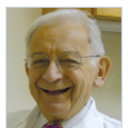Upregulation of vascular endothelial growth factor by cobalt chloride-simulated hypoxia is mediated by persistent induction of cyclooxygenase-2 in a metastatic human prostate cancer cell line.
キーワード
概要
Upregulation of vascular endothelial growth factor (VEGF) expression induced by hypoxia is crucial event leading to neovascularization. Cyclooxygenase-2, an inducible enzyme that catalyzes the formation of prostaglandins (PGs) from arachidonic acid, has been demonstrated to be induced by hypoxia and play role in angiogenesis and metastasis. To investigate the potential effect of COX-2 on hypoxia-induced VEGF expression in prostate cancer. We examined the relationship between COX-2 expression and VEGF induction in response to cobalt chloride (CoCl2)-simulated hypoxia in three human prostate cancer cell lines with differing biological phenotypes. Northern blotting and ELISA revealed that all three tested cell lines constitutively expressed VEGF mRNA, and secreted VEGF protein to different degrees (LNCaP > PC-3 > PC3ML). However, these cell lines differed in the ability to produce VEGF in the presence of CoCl2-simulated hypoxia. CoCl2 treatment resulted in 40% and 75% increases in VEGF mRNA, and 50% and 95% in protein secretion by LNCaP and PC-3 cell lines, respectively. In contrast, PC-3ML cell line, a PC-3 subline with highly invasive, metastatic phenotype, exhibits a dramatic upregulation of VEGF, 5.6-fold in mRNA and 6.3-fold in protein secretion after treatment with CoCl2. The upregulation of VEGF in PC-3ML cells is accompanied by a persistent induction of COX-2 mRNA (6.5-fold) and protein (5-fold). Whereas COX-2 expression is only transiently induced in PC-3 cells and not affected by CoCl2 in LNCaP cells. Moreover, the increases in VEGF mRNA and protein secretion induced by CoCl2 in PC-3ML cells were significantly suppressed following exposure to NS398, a selective COX-2 inhibitor. Finally, the effect of COX-2 inhibition on CoCl2-induced VEGF production was reversed by the treatment with exogenous PGE2. Our data demonstrate that VEGF induction by cobalt chloride-simulated hypoxia is maintained by a concomitant, persistent induction of COX-2 expression and sustained elevation of PGE2 synthesis in a human metastatic prostate cancer cell line, and suggest that COX-2 activity, reflected by PGE2 production, is involved in hypoxia-induced VEGF expression, and thus, modulates prostatic tumor angiogenesis.



